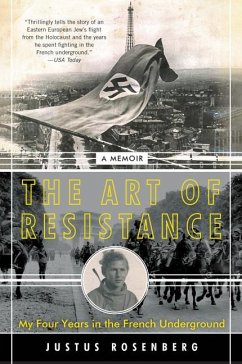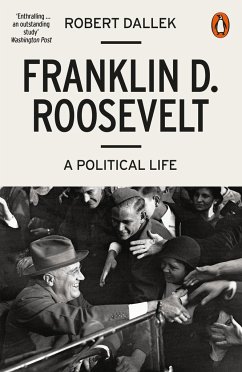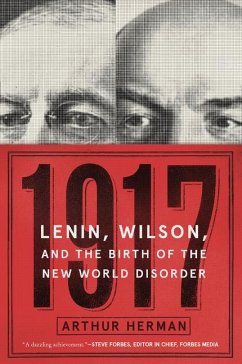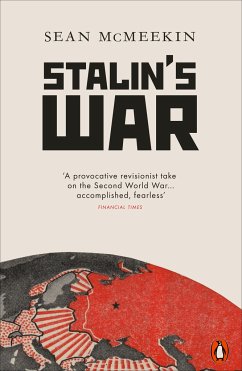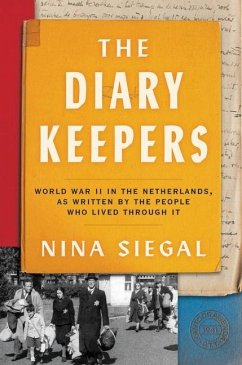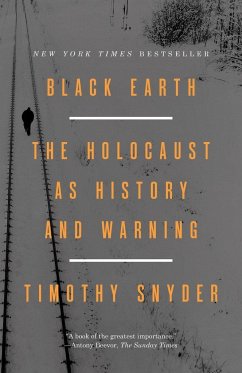
The Trials of Harry S. Truman
The Extraordinary Presidency of an Ordinary Man, 1945-1953

PAYBACK Punkte
8 °P sammeln!
Jeffrey Frank, author of the bestselling Ike and Dick, returns with the "beguiling" (The New York Times) first full account of the Truman presidency in nearly thirty years, recounting how a seemingly ordinary man met the extraordinary challenge of leading America through the pivotal years of the mid-20th century.The nearly eight years of Harry Truman's presidency-among the most turbulent in American history-were marked by victory in the wars against Germany and Japan; the first use of an atomic bomb and the development of far deadlier weapons; the start of the Cold War and the creation of the ...
Jeffrey Frank, author of the bestselling Ike and Dick, returns with the "beguiling" (The New York Times) first full account of the Truman presidency in nearly thirty years, recounting how a seemingly ordinary man met the extraordinary challenge of leading America through the pivotal years of the mid-20th century.
The nearly eight years of Harry Truman's presidency-among the most turbulent in American history-were marked by victory in the wars against Germany and Japan; the first use of an atomic bomb and the development of far deadlier weapons; the start of the Cold War and the creation of the NATO alliance; the Marshall Plan to rebuild the wreckage of postwar Europe; the Red Scare; and the fateful decision to commit troops to fight a costly "limited war" in Korea.
Historians have tended to portray Truman as stolid and decisive, with a homespun manner, but the man who emerges in The Trials of Harry S. Truman is complex and surprising. He believed that the point ofpublic service was to improve the lives of one's fellow citizens and fought for a national health insurance plan. While he was disturbed by the brutal treatment of African Americans and came to support stronger civil rights laws, he never relinquished the deep-rooted outlook of someone with Confederate ancestry reared in rural Missouri. He was often carried along by the rush of events and guided by men who succeeded in refining his fixed and facile view of the postwar world. And while he prided himself on his Midwestern rationality, he could act out of instinct and combativeness, as when he asserted a president's untested power to seize the nation's steel mills.
The Truman who emerges in these pages is a man with generous impulses, loyal to friends and family, and blessed with keen political instincts, but insecure, quick to anger, and prone to hasty decisions. Archival discoveries, and research that led from Missouri to Washington, Berlin and Korea, have contributed to an indelible and "intimate" (The Washington Post) portrait of a man, born in the 19th century, who set the nation on a course that reverberates in the 21st century, a leader who never lost a schoolboy's love for his country and its Constitution.
The nearly eight years of Harry Truman's presidency-among the most turbulent in American history-were marked by victory in the wars against Germany and Japan; the first use of an atomic bomb and the development of far deadlier weapons; the start of the Cold War and the creation of the NATO alliance; the Marshall Plan to rebuild the wreckage of postwar Europe; the Red Scare; and the fateful decision to commit troops to fight a costly "limited war" in Korea.
Historians have tended to portray Truman as stolid and decisive, with a homespun manner, but the man who emerges in The Trials of Harry S. Truman is complex and surprising. He believed that the point ofpublic service was to improve the lives of one's fellow citizens and fought for a national health insurance plan. While he was disturbed by the brutal treatment of African Americans and came to support stronger civil rights laws, he never relinquished the deep-rooted outlook of someone with Confederate ancestry reared in rural Missouri. He was often carried along by the rush of events and guided by men who succeeded in refining his fixed and facile view of the postwar world. And while he prided himself on his Midwestern rationality, he could act out of instinct and combativeness, as when he asserted a president's untested power to seize the nation's steel mills.
The Truman who emerges in these pages is a man with generous impulses, loyal to friends and family, and blessed with keen political instincts, but insecure, quick to anger, and prone to hasty decisions. Archival discoveries, and research that led from Missouri to Washington, Berlin and Korea, have contributed to an indelible and "intimate" (The Washington Post) portrait of a man, born in the 19th century, who set the nation on a course that reverberates in the 21st century, a leader who never lost a schoolboy's love for his country and its Constitution.





